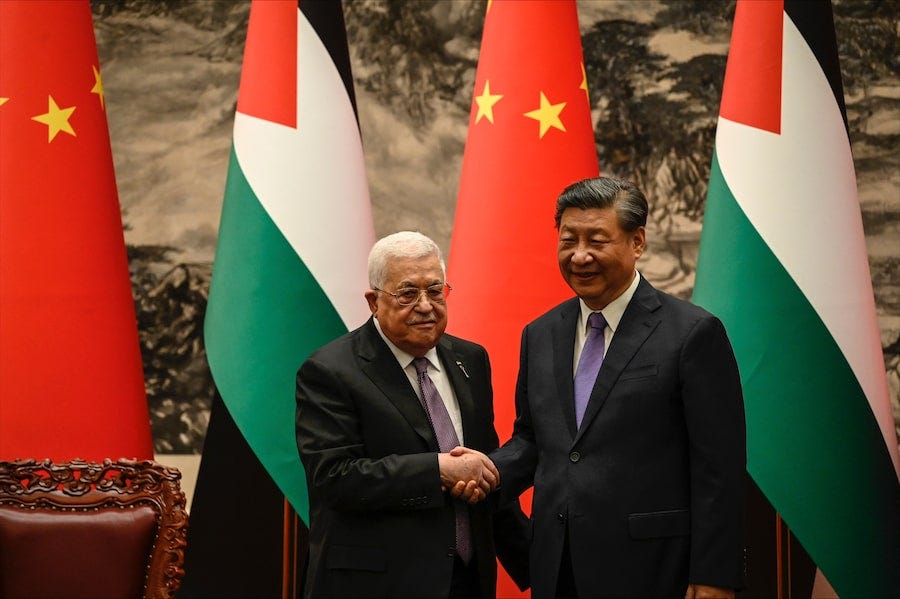Peace and Principle
China's principled stance on Palestine, Israel vows to press on in Gaza after UN Security Council approves ceasefire proposal, and FM Wang Yi calls on BRICS to promote consensus on peace.
China's principled stance on Palestine exposes US hypocrisy
By Josef Gregory Mahoney (China’s Diplomacy)
China's principled stance on the Palestinian-Israeli conflict exposes the hypocrisy of the United States, which continues to ignore the root causes of the conflict. When Chinese leaders met their counterparts in Beijing recently at the 10th Ministerial…






